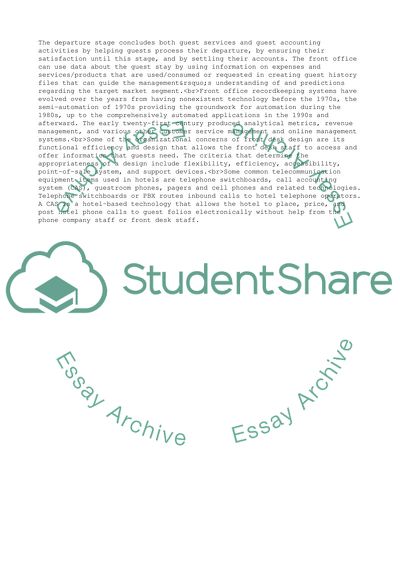Cite this document
(Traditional Guest Cycle in Hotel Management Front Office Operations Book Report/Review, n.d.)
Traditional Guest Cycle in Hotel Management Front Office Operations Book Report/Review. Retrieved from https://studentshare.org/management/1838503-hotel-management-front-office-operations-questions
Traditional Guest Cycle in Hotel Management Front Office Operations Book Report/Review. Retrieved from https://studentshare.org/management/1838503-hotel-management-front-office-operations-questions
(Traditional Guest Cycle in Hotel Management Front Office Operations Book Report/Review)
Traditional Guest Cycle in Hotel Management Front Office Operations Book Report/Review. https://studentshare.org/management/1838503-hotel-management-front-office-operations-questions.
Traditional Guest Cycle in Hotel Management Front Office Operations Book Report/Review. https://studentshare.org/management/1838503-hotel-management-front-office-operations-questions.
“Traditional Guest Cycle in Hotel Management Front Office Operations Book Report/Review”, n.d. https://studentshare.org/management/1838503-hotel-management-front-office-operations-questions.


